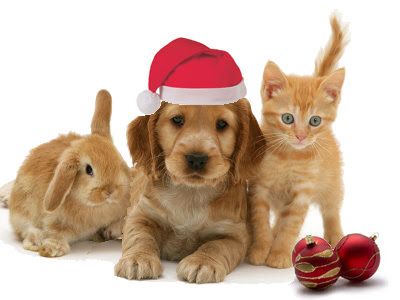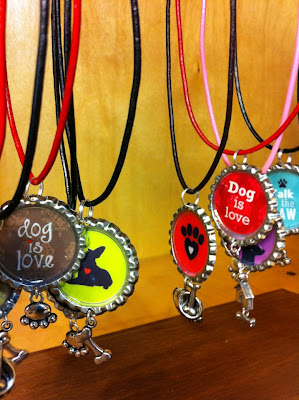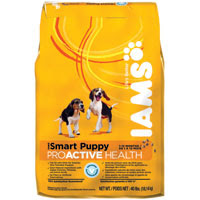
Winter's cold air brings many concerns for responsible dog owners. Keep the following precautions in mind:
Don't leave your dog outside in the cold for long periods of time. Wind chill makes days colder than actual temperature readings. Be attentive to your dog's body temperature, and limit its time outdoors.
Adequate shelter is a necessity. Keep your dog warm, dry and away from drafts. Tiles and uncarpeted areas may become extremely cold, so make sure to place blankets and pads on floors in these areas.
Be extra careful when walking or playing with your dog near frozen lakes, rivers or ponds. Your dog could slip or jump in and get seriously injured.
Groom your dog regularly. Your dog needs a well-groomed coat to keep properly insulated. Short- or coarse-haired dogs may get extra cold, so consider a sweater or coat. Long-haired dogs should have excess hair around the toes and foot pads trimmed to ease snow removal and cleaning. If you do the trimming, take care not to cut the pads or other delicate area of the foot.
Feed your dog additional calories if it spends a lot of time outdoors or is a working animal. It takes more energy in the winter to keep body temperature regulated, so additional calories are necessary.
Towel or blow-dry your dog if it gets wet from rain or snow. It is important to dry and clean its paws, too. This helps avoid tiny cuts and cracked pads. A little petroleum jelly may soften the pads and prevent further cracking.
Don't leave your dog alone in a car. If the car engine is left on, the carbon monoxide will endanger your dog's life. If the engine is off, the temperature in the car will get too cold.
Health TipsDogs cannot talk to us when they are sick. As a responsible dog owner, it is important to pay special attention to your dog's well-being during the winter season. Remember the following health concerns:
Antifreeze, which often collects on driveways and roadways, is highly poisonous. Although it smells and tastes good to your dog, it can be lethal.
Rock salt, used to melt ice on sidewalks, may irritate footpads. Be sure to rinse and dry your dog's feet after a walk.
Provide plenty of fresh water. Your dog is just as likely to get dehydrated in the winter as in the summer. Snow is not a satisfactory substitute for water.
Frostbite is your dog's winter hazard. To prevent frostbite on its ears, tail and feet, don't leave your dog outdoors for too long.
Be very careful of supplemental heat sources. Fireplaces and portable heaters can severely burn your dog. Make sure all fireplaces have screens, and keep portable heaters out of reach.
Like people, dogs seem to be more susceptible to illness in the winter. Take your dog to a veterinarian if you see any suspicious symptoms.
Don't use over-the-counter medications on your dog without consulting a veterinarian.
Holiday SafeguardsThe winter season brings lots of fun holiday festivities, but pet-owners should keep in mind the following special precautions:
The holidays are not ideal for introducing a pet into your family. New puppies and dogs require extra attention and a stable environment, which the holiday season doesn't permit. Also, a puppy is not a toy or gift that can be returned. Instead, the AKC suggests giving a gift representative of the dog to come, such as a toy, a leash, or a bed.
Holly, mistletoe and poinsettia plants are pet poisons! Make sure they are kept in places your dog cannot reach.
Review holiday gifts for dogs to make sure they are safe. Items such as plastic toys and small rawhide sticks may be dangerous.
Remove holiday lights from lower branches of your tree. They may get very hot and burn dogs.
Watch out for electrical cords. Pets often try to chew them and may get badly shocked or electrocuted. Place wires out of reach.
Avoid using glass ornaments. They break easily and may cut a dog's feet and mouth.
Refrain from using edible ornaments. Your dog may knock the tree over in an attempt to eat them. Also, commercial ornaments may contain paint or toxins in the preservatives.
Whether your tree is live or artificial, both kinds of needles are sharp and indigestible. Don't leave your dog unattended in the room with the tree.
Tinsel is dangerous for dogs. It may obstruct circulation and, if swallowed, block the intestines.
Alcohol and chocolate are toxic for dogs, even in small amounts. Keep unhealthy, sweet treats and seasonal goodies out of reach.
The holiday season is a stressful time for dogs. Try to keep a normal schedule during all the excitement.
http://www.akc.org/public_education/winter_care.cfm












